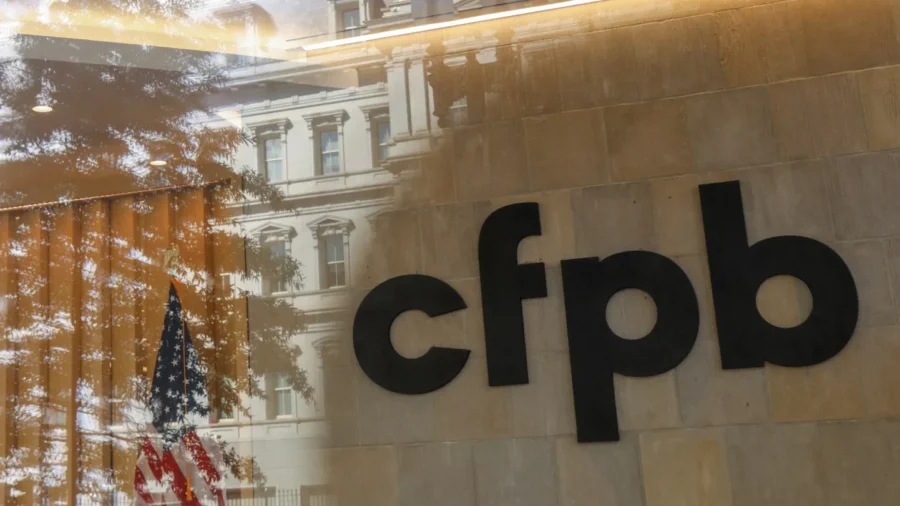New federal rules will be expanded to protect shoppers who use the widely popular “Buy Now, Pay later” (BNPL) method, according to the Consumer Financial Protection Bureau (CFPB) on Wednesday.
The federal consumer watchdog issued an interpretive rule that states BNPL lenders are effectively credit card providers and therefore must provide consumers with the same basic protections as credit card users.
The move comes after the federal watchdog launched an inquiry into the rapidly expanding BNPL business more than two years ago. CFPB uncovered that consumers disputed or returned $1.8 billion in transactions at five firms in 2021 alone.
Over a third of U.S. adults have used a BNPL payment method at checkout, according to a Bankrate survey. However, this type of payment structure has come with challenges, 56 percent of BNPL users reported issues with overspending, missing payments, and regretting purchases.
BNPL allows shoppers to split purchases into a series of interest-free installments, typically over six weeks. This method lifts the financial burden off consumers with tight budgets and allows them to spread out payments instead of making a one-time, full payment on merchandise.
Under the new rule, shoppers who rely on installment payments should get prompt refunds for returned items, receive regular billing statements, and be able to pause payments during investigations into disputed charges.
“Regardless of whether a shopper swipes a credit card or uses Buy Now, Pay Later, they are entitled to important consumer protections under longstanding laws and regulations already on the books,” CFPB Director Rohit Chopra said in a statement.
Affirm, Afterpay, Klarna, Paypal, and Zip are the BNPL industry’s top five players. The companies generated $24 billion in loans in 2021, compared to $2 billion in 2019, according to CFPB data.
Klarna said that the new rule is “confusing” and that the company is already working to investigate disputes, pause payments, and provide billing statements. The company also said there are major differences between BNPL and credit card companies.
“Trying to regulate BNPL like a credit card is like comparing apples with oranges,” the company said in a statement.
“Credit cards typically allow users to borrow up to a predetermined limit, are underwritten at a moment in time, and charge revolving interest on unpaid balances. They typically come with various fees, including annual fees, and interest charges that can accumulate if the balance isn’t paid off each month.”
Klarna said its BNPL is short-term, no-interest credit with no fees when paid on time. The company also said it underwrites every transaction to ensure it only lends to consumers who can pay back.
But some BNPL plans can include hefty fees for those customers who miss payments, according to Consumer Reports. The consumer advocacy organization praised the move to regulate the payment method.
“Buy now, pay later loans are wildly popular but they lack some critical consumer protections that leave consumers at risk,” said Jennifer Chien, a senior policy counsel at Consumer Reports. “Consumers who use BNPL loans often get the runaround when they are unhappy with a purchase and can face weeks of hassle trying to get a refund. The CFPB’s new rule will help ensure consumers can dispute charges and get their money back promptly just as they are guaranteed by law when they make a purchase with a credit card,” she said in a statement.
Loans offered by BNPL companies are not typically reported to credit bureaus or reported on consumers’ credit reports. This lack of oversight prompts concerns that users may be taking on too much debt, unbeknownst to other lenders or regulators.
The new BNPL rules go into effect in 60 days.

